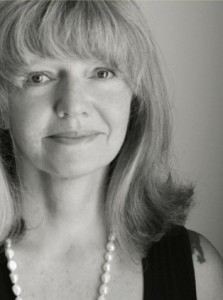Research for writing 1: DISTANCE NO OBJECT
I’ve been thinking lately about the many different ways that research contributes to my own writing. There’s been a lot on the social media landscape about the ways other writers use research. In reality, it can be a very expensive process and can seem problematic or impossible if it involves travel.
I gave a talk this week about the research behind my last book, a biography of 19th century botanist, Georgiana Molloy, and just yesterday I had a completely new kind of research experience so I think the time has come to say a bit about what all this means to me. Research is so much a part of the work I do, so embedded in my writing and thinking, that this blog will probably have to be a two-parter!
In the early days of the research for ‘The Mind That Shines’ I occasionally had to travel to the UK for work and it was a chance to do first-hand research in the archives at weekends while I was there. I even travelled to the places where Georgiana had lived in London and Scotland, though time was seriously limited by my budget. If you’ve read the book, you’ll know I emptied my bank account for a train ticket and the cheapest hotel in town to see a diary in the north of England the day before I came home to WA. I realise now that I might have been able to apply for a grant to support some of that decade of research but I was happy just to follow in Georgiana’s footsteps while I was on that side of the world. My husband spent his weeks off – for years – in graveyards and museums in lieu of holidays and I’ll always be grateful to him for his forbearance.
Time has moved on. The research question comes up again and again. I’ve finished work on another story set partly in Jamaica in the late 18th century. I’ve never been there. I’m retired so now I have all the free time I ever dreamt of but a research trip for that book was financially out of the question. So, I used first-hand contemporary accounts, available free online, and immersed myself in descriptions, diaries, letters. I read for hours and hours until I felt as if I knew the place. I could feel it and smell it. Perhaps not the same as a visit but perhaps even better – I needed to know what it was like to be there in 1790.
Today, I’m in the early stages of a novel set in London in the early 19th century and it involves a true crime. With a list of vital documents in the archives there, papers I need to see, I felt blocked in moving any further with my writing. A long-distance trip to the UK is out of the question. How many of us can choose to travel interstate, or even further afield, just to do research for a book?
But there are ways! A generous friend who lives near London agreed to visit one of the archives on a sunny London morning. I spent the evening here in Western Australia and she sent me some photographs of a document, just as if I was there with her. It was a thrilling experience to see somethingI longed to see for myself, popping up on my computer screen – perhaps even more exciting than it would have been to be there myself.
It was Miranda’s first go at archival research and I’m happy to say she enjoyed it very much. Actually, I think that’s an understatement. She was moved by the closeness such an old document can give us to people who lived in the past “I must say it is VERY exciting to hold something that may not have been read for 200 years. You do rather feel the ghosts.” She was in awe of the amazing knowledge the archivists have. “They were so incredibly knowledgeable and good at their job.” I saw her connection to the story growing as her emails came through. “It’s been really enjoyable so far! And very different. It’s everything you expect it to be but 100% more.”
So, if you really want to write about a place you don’t know from personal experience… If you want to see a document that’s hidden away in a library somewhere… If you want to just know what it’s like to stand in a particular place, far away, and your finances don’t smile back at you…. Don’t give up, at least not until you’ve explored all the research pathways that could take you there in other ways. It’s obvious that the first choice for all of us would be to make the trip, feel the paper, see the landscape, touch the bricks. But if that isn’t an option we can travel in other ways. We have imagination and when that merges with careful research, distance does not have to be a barrier. Other writers may feel differently, and I can only pass on my own experience, but I hope these thoughts might be helpful.
